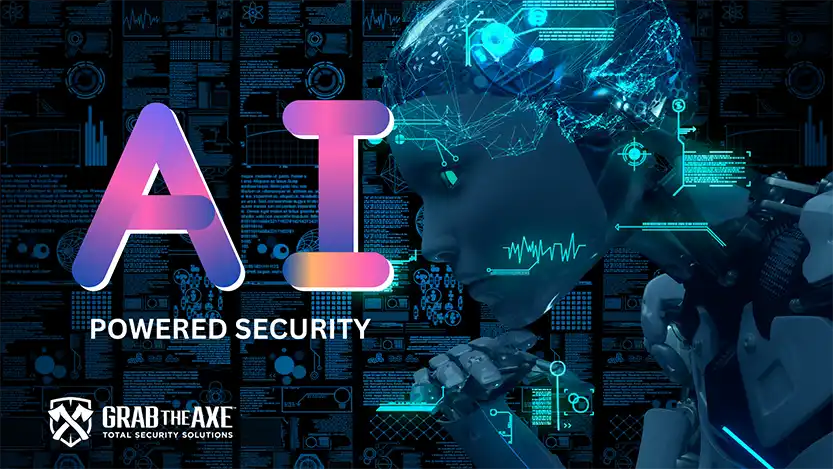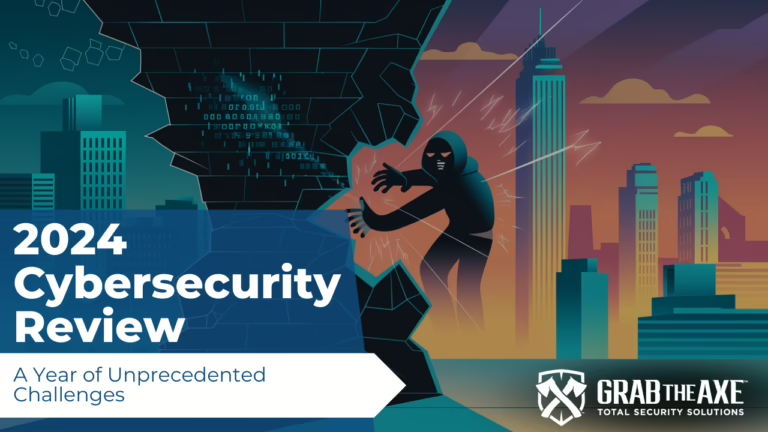The use of AI-powered security in both personal and corporate environments is revolutionizing how businesses and homeowners protect their assets. AI-powered security systems offer cutting-edge solutions for threat detection and response, promising faster and more efficient protection than traditional methods. As we move toward a more technologically integrated world, AI-powered security is becoming a cornerstone in safeguarding both personal and corporate interests. In this article, we will explore the benefits, real-world applications, and ethical concerns surrounding AI-powered security, with a strong emphasis on how AI can drastically improve protection measures.
What is AI-Powered Threat Detection?
AI-powered threat detection refers to the use of algorithms and machine learning to identify, assess, and respond to security threats in real time. Unlike traditional systems that rely on static, rule-based detection, AI systems continuously learn from patterns and behaviors, becoming smarter over time (Zhou, 2020). AI technology leverages vast amounts of data from surveillance cameras, network traffic, and access logs, allowing it to analyze and predict potential security breaches more accurately than ever before. Whether it’s identifying intruders through facial recognition or detecting cyber threats in company servers, AI is shaping the future of security systems.
A key example of AI in action is facial recognition technology used by law enforcement agencies. AI can compare real-time video footage with large databases of images, identifying persons of interest within seconds (Smith, 2021). This capability has improved the accuracy and speed of criminal identification, making AI-powered systems far superior to manual monitoring.
The Key Benefits of AI in Security
AI’s role in enhancing security is multi-faceted. Here are some significant benefits:
- Instantaneous Threat Detection and Proactive Response: AI-powered security systems, like Deep Sentinel, provide continuous, real-time monitoring and threat analysis. These systems can dispatch law enforcement or trigger security protocols immediately upon detecting suspicious behavior, reducing the time it takes to respond to potential threats (Deep Sentinel, 2023).
- 24/7 Monitoring: Unlike human-operated systems, AI-powered security never rests. With AI-powered security cameras, firewalls, and detection systems, every aspect of security is continuously monitored, ensuring comprehensive protection (Zhou, 2020).
- Predictive Analytics: One of the most significant advantages of AI-powered security is its predictive capabilities. AI systems can analyze historical data to anticipate potential risks, alerting security teams before an incident even occurs (Smith, 2021).
- Reduction in False Alarms: Traditional security systems often trigger false alarms. AI-powered security systems can differentiate between harmless activity, such as a pet walking by, and actual threats, thereby significantly reducing the number of false alarms (Deep Sentinel, 2023).n upcoming security breach, whether it’s unusual behavior in public spaces or anomalies in digital infrastructure (Smith, 2021).
AI and Home Security: How It Protects Families
AI’s influence in home security is one of the most relatable applications for everyday consumers. From Google Nest to Ring, AI-powered home security solutions are becoming more commonplace. These devices not only record footage but also analyze it to detect unusual patterns, such as unauthorized access attempts. AI integrates with other smart home devices, enabling homeowners to lock doors, trigger alarms, and alert authorities with just a few taps on their smartphones.
One powerful feature of AI in home security is facial recognition. This technology can identify known individuals—such as family members or frequent visitors—and alert the homeowner only when an unrecognized face appears on the premises (Smith, 2021). As a result, families benefit from reduced intrusion risks while experiencing fewer distractions caused by unnecessary alerts.
Ethical Concerns: Balancing Security with Privacy
While AI offers unparalleled benefits in security, it also brings up significant ethical concerns—primarily around privacy and data security. Facial recognition technology, for instance, has faced backlash due to its potential misuse and surveillance overreach (Zhou, 2020). Critics argue that AI-based systems, particularly in corporate or government use, might erode privacy rights by continuously monitoring public and private spaces without proper consent.
Additionally, the storage and use of personal data collected by AI-powered security systems raise questions about who controls the data and how it is used. The risk of hacking and data breaches is also prevalent, as sensitive information, such as facial recognition data or home security footage, could be compromised (Deep Sentinel, 2023).
Governments and organizations must balance security advancements with privacy protections to avoid misuse or abuse of AI-driven surveillance systems. Regulations such as the General Data Protection Regulation (GDPR) in Europe aim to set standards for privacy and data protection in the context of AI (European Union, 2018). However, the debate continues over whether these regulations are enough to prevent AI from becoming a tool for over-surveillance.
The Future of AI in Security
Looking ahead, AI will continue to evolve, expanding its capabilities in security. Innovations such as autonomous drones and AI-powered robots are already being tested for use in security patrols and threat mitigation (Zhou, 2020). Additionally, neural networks are being developed to create even smarter AI systems that can autonomously learn and adapt to new security challenges without human intervention (Smith, 2021).
The potential applications are endless—from AI-powered cybersecurity solutions that protect businesses from complex digital threats to smart drones that patrol property perimeters. In fact, several companies are already integrating these advancements into their operations. For example, Tesla and Amazon are exploring autonomous security systems for both home and corporate use (Deep Sentinel, 2023).
AI is undeniably revolutionizing the security landscape, providing unparalleled threat detection and response capabilities for personal and corporate use. As technology continues to advance, AI’s role in security will only grow stronger, bringing more sophisticated and reliable solutions. For individuals and businesses looking to stay ahead of the curve, now is the time to consider adopting AI-powered security systems to ensure safety and protection in an increasingly unpredictable world. To learn more about how AI security systems can protect your assets, contact Grab The Axe and explore our tailored security solutions.
References:
Deep Sentinel. (2023). AI-powered home security: Protect your home with AI. DeepSentinel.com. https://www.deepsentinel.com/
European Union. (2018). General Data Protection Regulation (GDPR). https://gdpr.eu/
Smith, J. (2021). The impact of artificial intelligence on corporate security. Journal of Security Technology, 9(2), 85-103.
Zhou, T. (2020). AI in modern surveillance systems: Ethical implications and technological advancements. International Journal of Security and Privacy, 14(3), 112-127.
To Learn More:
Why Resort Security Services in Phoenix Must Include Tailored Assessments
Cybersecurity 2024: Why Your Business Might Be the Next Target (and How to Prevent It)
Top 10 Factors to Consider When Choosing a Security Guard Service in 2024





This Post Has One Comment
Pingback: 5 Unbelievable Ways Machine Learning is Transforming Network Security - Grab The Axe
Comments are closed.